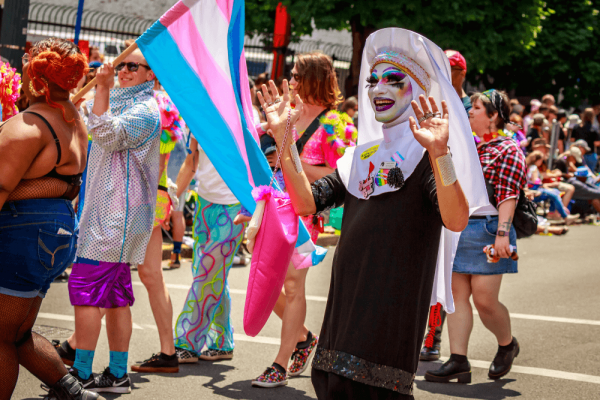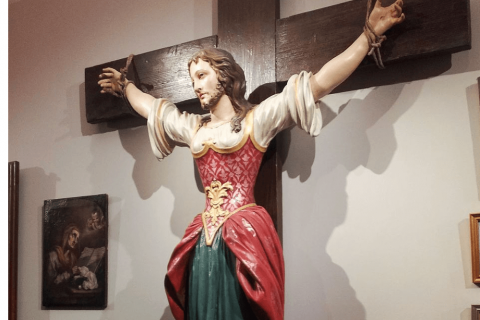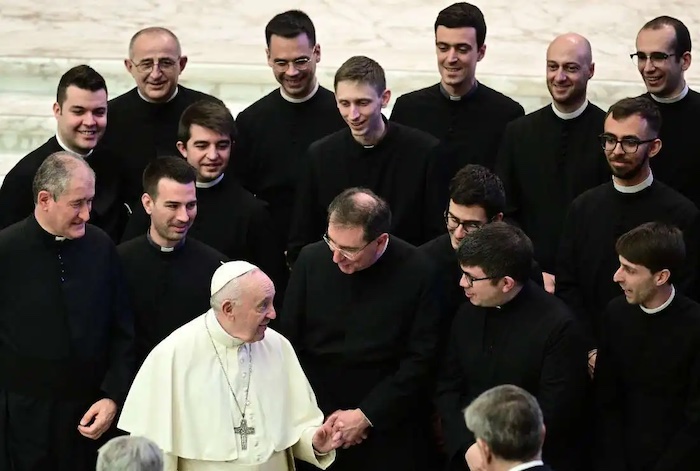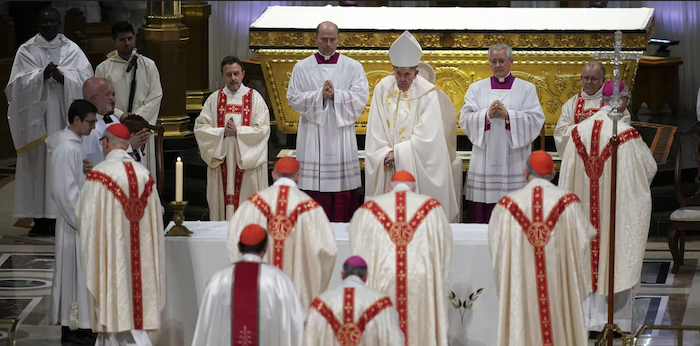— The letter follows a recent statement from U.S. Catholic bishops discouraging Catholic health-care groups from performing various gender-affirming medical procedures
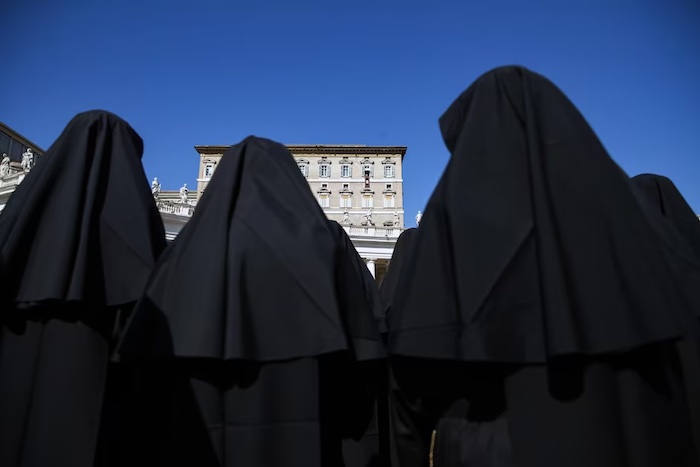
By Jack Jenkins
A coalition led by Catholic nuns, representing thousands of women religious and associates at partner groups, released a public a letter on Friday voicing support for transgender, nonbinary and gender-expansive individuals, declaring they “are beloved and cherished by God” and implicitly rebuking recent statements from the U.S. Catholic hierarchy.
The letter is meant to mark the International Day of Transgender Visibility, which takes place Friday.
“As members of the body of Christ, we cannot be whole without the full inclusion of transgender, nonbinary, and gender-expansive individuals,” the letter reads. It goes on to argue that “we will remain oppressors until we — as vowed Catholic religious — acknowledge the existence of LGBTQ+ people in our own congregations. We seek to cultivate a faith community where all, especially our transgender, nonbinary, and gender-expansive siblings, experience a deep belonging.”
The letter also states transgender people are “experiencing harm and erasure” in various ways, listing daily discrimination, a groundswell of state-level legislation aimed at LGBTQ rights and “harmful rhetoric from some Christian institutions and their leaders, including the Catholic Church.”
Prepared by representatives from various communities including the U.S. Federation of the Sisters of St. Joseph, Sisters of Providence of St. Mary-of-the-Woods, Indiana, and Sisters of Charity of Leavenworth JPIC office, the letter lists orders of nuns and other organizations representing more than 6,000 vowed religious across 18 states.
Among the signatories are various offices of the Sisters of Charity; the leadership of the Presentation Sisters of Dubuque, Iowa; Sisters of Loretto/Loretto Community; multiple offices of the School Sisters of Notre Dame; the Dominican Sisters of Houston; and the Justice Office of the Medical Mission Sisters.
The letter also lists ways to take action, such as supporting New Ways Ministry, a Catholic LGBTQ outreach group, or signing a statement highlighting a “Catholic commitment to trans-affirmation” from DignityUSA.
The nuns’ effort comes in the wake of a doctrinal statement published earlier this month by a committee of the U.S. Conference of Catholic Bishops, which discouraged Catholic health-care groups from performing various gender-affirming medical procedures, arguing doing so does not respect the “intrinsic unity of body and soul.”
Sister Barbara Battista, the congregation justice promoter for the Sisters of Providence, St. Mary-of-the-Woods, noted the letter was already in the works before the bishops unveiled their doctrinal statement. Battista said she and other crafters of the letter were initially responding to the wave of bills being considered in state legislatures that target transgender rights.
When the bishops’ statement became public, Battista said, it jump-started their efforts.
“There’s a sense of urgency in me to say that there are many, many faithful Catholics who know a different way,” said Battista, who has publicly advocated for other causes in the past.
“We need to find opportunities to speak up and to say, ‘We are with you, we support you.’”
Battista noted that many of the bills working their way through state legislatures revolve around the health-care needs of trans people, an issue that hits home for her as a licensed physician assistant in Indiana. She described her work as “participating in the healing ministry of Jesus,” rooted, she said, in a “sacred trust” between patients and providers.
But Catholic leaders and government officials, she argued, have tried to “insert themselves into the private, very personal and intimate conversations and decisions made between the health-care provider and the person they are serving.”
Another person who assisted in crafting the letter, a nonbinary member of a Catholic religious community who asked to remain anonymous for fear of backlash against their community, echoed Battista’s comments in an interview with Religion News Service. “It’s past time for religious communities to speak out against the injustice, the violence, the exclusion of trans, nonbinary persons within society and the church,” they said.
The person also expressed hope the letter would draw attention to the fact that Catholic communities include transgender, nonbinary and gender-expansive individuals.
“It’s not some outside group,” they said. “There are members of religious communities who identify as transgender or nonbinary. … They’re not ‘out there.’”
In the past few decades, Catholic nuns have shown a willingness to take public stands on issues different from or even opposed to those of the American bishops. Earlier this month, former House speaker Nancy Pelosi recalled when U.S. bishops came out against the Affordable Care Act in 2010, a move that concerned some Catholic Democrats who wanted to vote for the bill. But a broad group of Catholic nuns voiced support for the ACA a short time later, a development Pelosi credited with helping get the bill passed, saying, “Thank God for the nuns.”
But the nuns’ activism was not without consequence. Their support for the ACA is widely believed to be one catalyst for a Vatican investigation of women religious in the United States. The investigation, launched under former Pope Benedict XVI, was discontinued by Pope Francis in 2015.
Battista and the nonbinary religious both said the dangers LGBTQ people face every day were far more daunting than kickback from Catholic officials. Said the anonymous religious: “It takes an enormous amount of courage because of discrimination, the actual real existence of threat of harm to our physical bodies and lives, but also the hatred and rejection.”
Complete Article ↪HERE↩!

